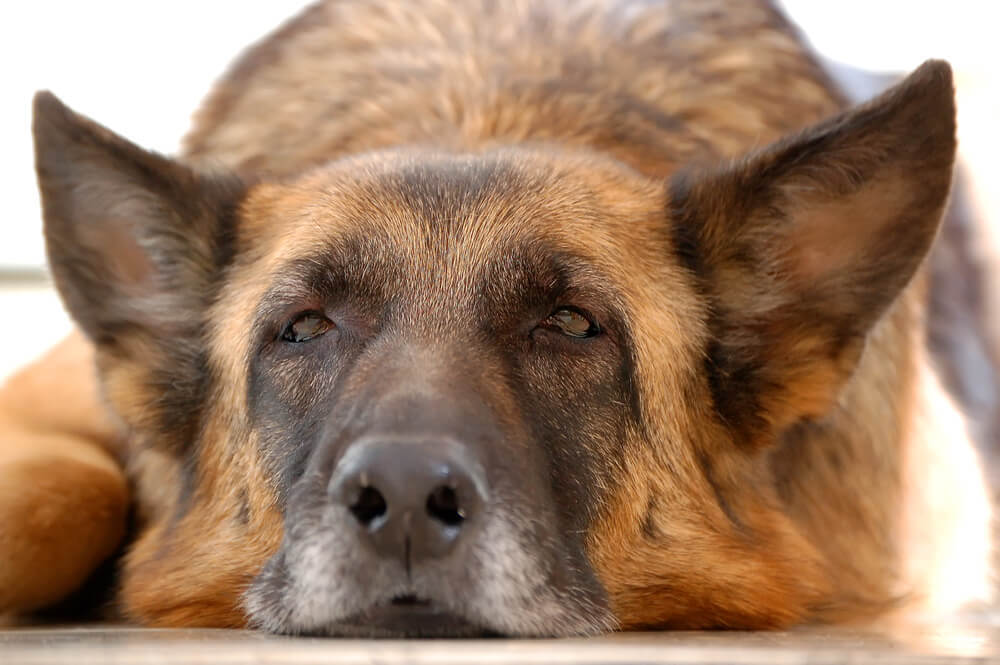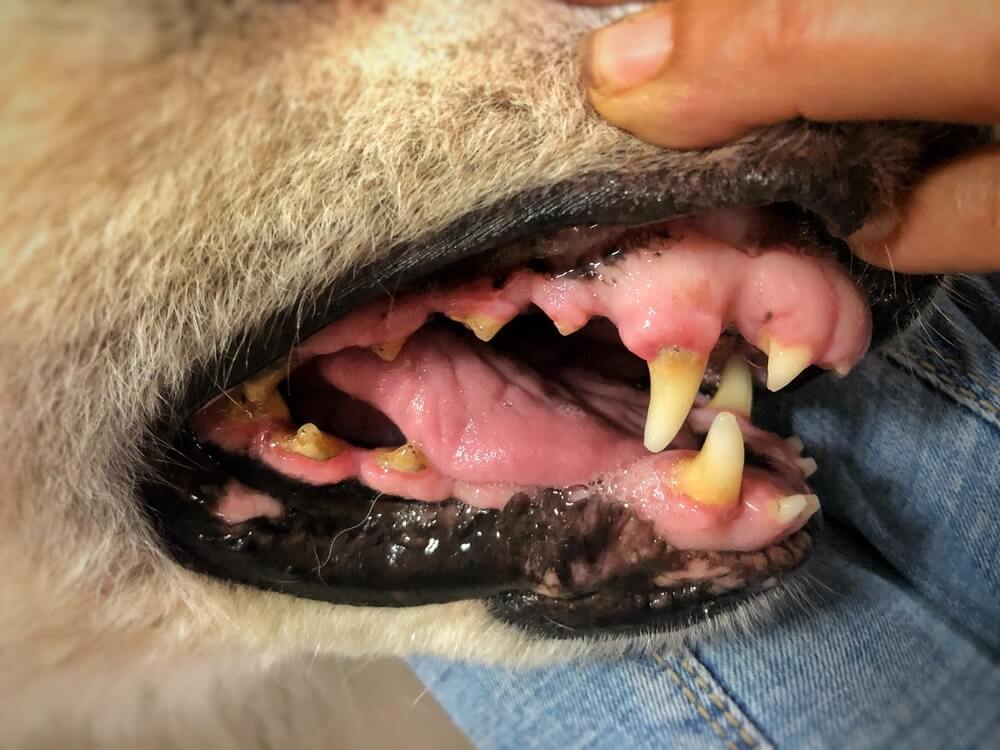One of the struggles parents have gone through for decades is determining when their child’s sore throat is just that, a soreness caused by colds or flus, and when it is strep throat, which is an infection rather than a virus and should be treated with antibiotics, which colds and flus should not. Pet parents often face similar problems, and ask themselves things like “can dogs get strep throat”?
The very simple answer is that yes, there are instances in which dogs can get strep throat, but it is far less common in dogs than in humans, and is rarely a stand-alone condition. There is of course an added complication when discussing dogs and strep throat. How can you tell if they have a sore throat at all?
Here we are going to take a closer look at the issue of canine strep throat and other related issues that pet parents often find confusing, especially when it comes to the various, and numerous, reasons their pup may have a sore throat.
Do Dogs Get Sore Throats?
While they can’t walk into the kitchen and tell you they have a sore throat, dogs do get them, and for a number of different reasons.
What is Strep Throat?
Most sore throats are just that, a soreness from a throat that has become inflamed as a result of a cold or the flu, or, in some cases, a particularly bad cough. These are all viruses, and cannot be treated with anything other than rest and fluids, and that is as true for a dog as it is for a human being.
A small proportion of the sore throats seen in doctor’s – and vet’s – offices every year are, however, the result of the infection known as strep throat. It’s called strep after the specific bacteria that is the culprit: streptococcus.
Understanding Strep Throat in Dogs
Strep throat as we know it is very rare in dogs. For their mouths to contain the streptococcus bacteria is less rare, but unless they are very immunocompromised, which may be the case for an older dog or one with a chronic condition that weakens their immune systems, or they are very young puppies, it is unlikely to make them ill.
Because strep throat is primarily a human illness, don’t automatically assume that your dog’s apparent throat problems are caused by streptococcus, especially as the chances of that being the case are very low.
For a number of years, some thought that the dormant streptococcus bacteria in a dog’s mouth may lead to infect humans around them. Research has now shown that is very rarely the case.
The reason why this is important is that this belief often led some vets to prescribe dogs antibiotics ‘preemptively’ to avoid them infecting their humans. This unfortunately contributed to the problem of antibiotic over prescription that has become a serious concern for both human and dog health.
Antibiotic resistance is promoted by misuse of antibiotics, particularly when antibiotics are used when they aren’t needed. Antibiotic usage in humans and animals is unnecessary or inappropriate, according to the Centers for Disease Control and Prevention.
Strep Throat vs Tonsillitis: What’s the Difference
In the world of human ailments, the terms strep throat and tonsillitis are often used interchangeably, leading many to think they are basically the same thing. However, that is far from the case.
Tonsillitis is an inflammation of the tonsils. Tonsils are located at the back of the throat – and dogs have two tonsils, just like humans, and are supposed to help keep bacteria out of the body. When they fail to do that, or are working very hard to fight off a lot of bacteria, the resultant inflammation, and occasionally infection, is known as tonsillitis.
In some rare cases, dogs can get tonsillitis, and in even rarer cases they may get it so often that a tonsillectomy is called for. However, once again, this is more of a human problem than a canine one.
What Causes Sore Throats in Dogs?

Only your vet can diagnose what might be the real cause of sore throats in dogs. To determine if an infection is the problem, they will need to do a culture test, as doctors do for humans. To see if the tonsils are the issue, they will need to perform a full examination.
But strep throat and tonsillitis are rare in dogs. So what else might cause sore throats in dogs?
1. Injury From Foreign Objects
Dogs live to put things in their mouths. A lot. In fact, it’s the rare pet parent who has not found themselves at least occasionally chasing their pup asking her (not that they’ll answer) what it is they have in their mouth as they are fairly sure it’s something that they should not have.
Throat injuries from foreign objects, or from a jagged bone are more common in dogs than primarily human ailments like strep throat or tonsillitis, and they will often cause sore throat-like pain. Such injuries could also be more serious, and a vet should always be consulted if you suspect your pup’s throat has been damaged by something she ate.
2. Kennel Cough
Kennel cough is another ailment that is more common in dogs than strep throat that may lead to a sore throat.
Kennel cough is a highly contagious illness that can strike any dog, of any breed, at any age. In many ways, it’s similar to the colds and flus that humans contract from one another, and it’s frequently, but not always, contracted when your dog is in close quarters with another sick dog. It’s called kennel cough because it’s widespread in dog shelters and boarding kennels with insufficient ventilation.
Kennel cough is the primary reason why, if you board your dog, or take her to doggy daycare, the provider will insist that they have an up to date Bordetella vaccine, as this is the vaccine created to ward kennel cough off.
3. Upper Respiratory Infection
If a dog is suffering from an upper respiratory infection, their labored breathing may result in a sore throat.
4. Dental Health Problems
In the rare circumstances that a dog does develop strep throat it can be as a result of poor dental health, and decayed teeth or gums can cause all kinds of infections in general, including throat infections.
5. Throat Cancer
Unfortunately, dogs can develop throat and mouth cancers, and some symptoms of a sore throat may be a sign of that.
Dog Sore Throats: Signs and Symptoms to Watch For

As we mentioned right at the beginning, your pup can’t exactly tell you that he has a sore throat in the same way as a child might. So how would you know if he even had one at all?
There are signs and symptoms you can watch for, including the following:
As many of these things can also be symptoms of other canine health problems, a visit to their vet is warranted as soon as possible. There your pup can be properly examined, and it can be determined if they have a sore throat, strep throat or something else entirely.
How are Dog Sore Throats Treated?
If your dog happens to have strep throat, it will be treated with antibiotics. If your dog has a throat injury there is possibly little that can be done, but your vet will be able to better assess how serious it is.
If the symptoms point to an underlying cause, such as kennel cough or an upper respiratory infection, they will be treated for that. And if the sore throat is the result of an infected tooth, that will probably be removed.
Can You Help Dogs Avoid Sore Throats?

Dogs do get their own versions of cold and flus, and so may get the occasional sore throat you can do little about, and the best treatment will be similar to that for a human: lots of fluids and rest.
There are some things you should do however to help prevent sore throats that result from accidental throat injury, poor dental health or kennel cough:
Get Serious About Your Dog’s Dental Health
Keeping your pup’s teeth clean can be a struggle, as many dogs hate their teeth being brushed. It is however important that you take that struggle on, as poor dental health can lead to all kinds of problems, including mouth, throat and upper respiratory problems as well as, in serious cases, systemic infections that can lead to organ failure.
Try to brush your dog’ teeth at least once a week, and have them cleaned at the vet when you take your pup for their well dog checkup. You can also try offering them a dental health treat like Greenies, which are designed to help maintain healthier teeth and gums.
Watch What Your Dog Eats
Telling you to try to keep your dog away from sharp foreign objects they can put in their mouths – and injure their throats with – is a bit of a no-brainer. But the bones you offer them can be a problem too. Thin, brittle bones – chicken bones are a good example – can splinter easily and lacerate the throat or even become lodged there, resulting in a far worse outcome than a sore throat.
Get Your Pup Vaccinated
Kennel cough is a possible cause of dog sore throats, but it can do far more damage than that, and even in a mild form is very unpleasant for pups. The Bordetella vaccine helps prevent it.
The kennel cough virus is extremely infectious. Your dog is at risk of getting kennel cough if he visits dog parks, stays in kennel facilities, goes to doggy daycare, or attends training programs or dog shows. Many of these establishments require confirmation of Bordetella vaccination before allowing dogs on the premises, so it is in your dog’s best interest to receive the vaccine for his well-being and extracurricular activities. If your dog is confined to the house and rarely interacts with other dogs, ask your vet if they think your dog is at risk of acquiring kennel cough.
Read Next: 9 Ways To Strengthen your Dog’s Immune System


